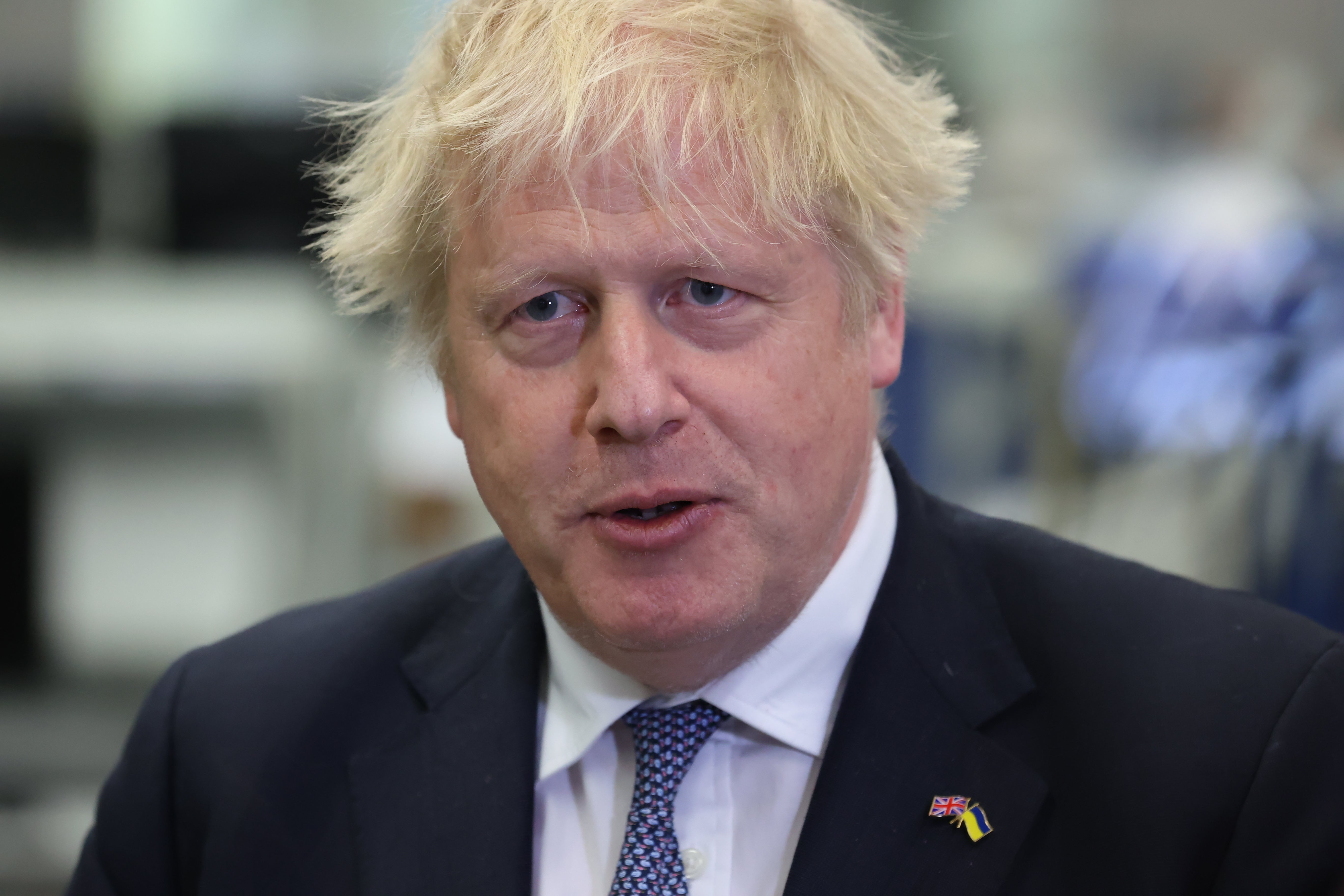How has Prime Minister Boris Johnson avoided another fine over partygate?
Mr Johnson was reported to have been present at six of the 12 events investigated by the police.

Your support helps us to tell the story
From reproductive rights to climate change to Big Tech, The Independent is on the ground when the story is developing. Whether it's investigating the financials of Elon Musk's pro-Trump PAC or producing our latest documentary, 'The A Word', which shines a light on the American women fighting for reproductive rights, we know how important it is to parse out the facts from the messaging.
At such a critical moment in US history, we need reporters on the ground. Your donation allows us to keep sending journalists to speak to both sides of the story.
The Independent is trusted by Americans across the entire political spectrum. And unlike many other quality news outlets, we choose not to lock Americans out of our reporting and analysis with paywalls. We believe quality journalism should be available to everyone, paid for by those who can afford it.
Your support makes all the difference.It is “unclear” how Prime Minister Boris Johnson has avoided receiving a second fine from the partygate investigation, a top lockdown lawyer has said.
Mr Johnson was reported to have been present at six of the 12 events investigated by the police as part of the partygate probe.
Previously, the Prime Minister, his wife Carrie, and Chancellor Rishi Sunak were all issued with – and paid – fines for attending a birthday bash held for the Prime Minister in June 2020.
However, following the conclusion of the investigation on Thursday, police have told Prime Minister Boris Johnson that he faces no further action.
The Prime Minister appears to have attended five of those and not been given a fixed-penalty notice, so it's a little unclear how they got to that conclusion
Adam Wagner, a human rights lawyer who has specialised in lockdown rule breaking, said it was “unclear” how the Metropolitan Police reached that conclusion.
“It sounds like, as I can understand from the Metropolitan Police and the press reports, that there were 126 people given fixed-penalty notices but some were given between two and five so maybe there’s quite a few more, but I don’t know because it’s not completely clear,” he said.
“On the dates, well it looks like eight of the 12 gatherings that were investigated in 2020 and 2021 were deemed to be illegal gatherings and therefore the people who attended were given fixed-penalty notices.
“But the Prime Minister appears to have attended five of those and not been given a fixed-penalty notice, so it’s a little unclear how they got to that conclusion.”
Asked how the Prime Minister could have avoided any further fines, Mr Wagner said the “only explanation” he could think of was that the police had taken a view that the purpose of gatherings changed over their course.
“The only explanation I can think is that a gathering can turn from one thing into another,” he said.
“Maybe it starts as, ‘Let’s raise a toast for our colleague and say a few words and then people stay on a drink into the evening’.
“So they may have decided that the gathering starts as one kind of gathering and then turns into another.
“That’s the only explanation I can think of.”
I'm not sure how they then get to the point that some who participate can be given fixed-penalty notices but some don't, because, ultimately, in law it's about what the gathering was for
Mr Wagner explained the law over the period of the rule breaking.
“The way the regulations worked is that it was illegal for people to gather, to participate in a gathering, of two or more people indoors for pretty much the whole of the pandemic – although it slightly varied at the very beginning,” he said.
“To have an excuse for being there, the gathering itself had to be reasonably necessary for work or volunteering or whatever.”
Taking this into account, he said the police would then have had to decide whether the gathering itself was subject to a “reasonable excuse”.
“So what the police would have been looking at, under the regulations, is whether the gathering itself was subject to a reasonable excuse”, he said.
“Was a leaving party, or a Christmas party, or a birthday party reasonably necessary for work.
“I’m not sure how they then get to the point that some who participate can be given fixed-penalty notices but some don’t, because, ultimately, in law it’s about what the gathering was for.”